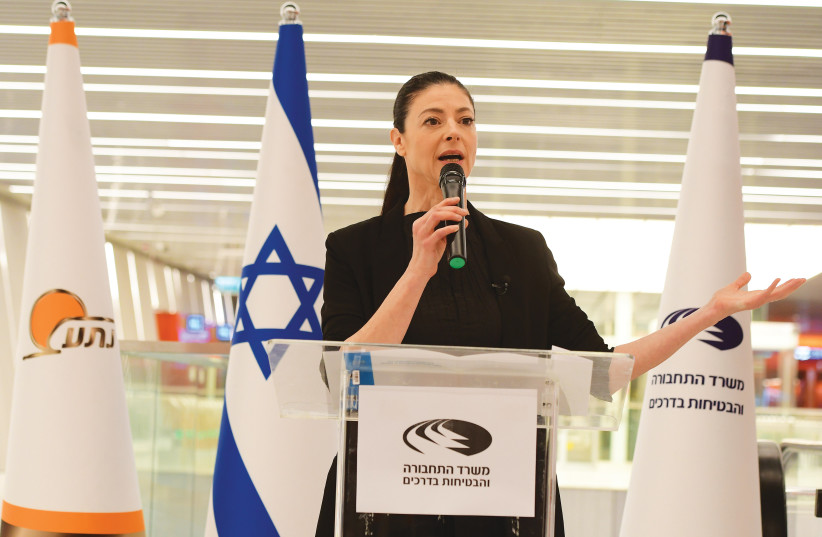Political parties must hand in their lists of candidates for the Knesset elections by 10 p.m. on Thursday. A number of questions that need answers before the deadline could lead to last-minute drama. These are the central issues remaining:
<br>Meretz-Labor merger
Labor and Meretz will need to decide whether they will run in a merged list or as two separate ones. Labor chair and Transportation Minister Merav Michaeli is staunchly against a merger, arguing the two parties will garner more votes independently. Meretz leader Zehava Galon supports a merger.
Polls over the weekend showed Meretz receiving one seat more than Labor, indicating that Michaeli’s party might be the one in danger of falling beneath the 3.25% electoral threshold. The two party leaders met briefly with Prime Minister Yair Lapid on Saturday night, during which Michaeli reiterated her opposition to a merger . She reportedly even told Lapid and Galon that if they are so keen on a merger, Meretz and Yesh Atid should merge and let Labor run independently.
Channel 13 reported on Sunday that Lapid had offered each of the parties one spot in the Yesh Atid list. He also offered ministerial portfolios if the joint party would receive 10 seats, no matter the final tally. Michaeli refused.

"Merging the parties was tried in the past and it failed. I have not seen one poll that shows that the merger strengthens the bloc. There is no argument here over portfolios, but over safeguarding the bloc against the return of Netanyahu."
Transportation Minister Merav Michaeli
“Merging the parties was tried in the past and it failed. I have not seen one poll that shows that the merger strengthens the bloc. There is no argument here over portfolios, but over safeguarding the bloc against the return of [opposition leader Benjamin] Netanyahu,” Michaeli said.
“We call on Yesh Atid to manage the event reasonably and level-headedly. That is how we won in the previous election and that is how we will win again.”
United Torah Judaism
United Torah Judaism are in negotiations over their list. A crisis broke out between the two parties a number of weeks ago over the Belz Hassidic group’s decision to enter a program offered by Education Minister Yifat Shasha-Biton. That program provides funding in exchange for students studying a core curriculum of English, mathematics and Hebrew.
Belz is part of Agudat Yisrael. Yet Degel Hatorah is strongly against the program, believing it breaches the independence of the haredi educational systems.
The two parties are in the midst of negotiating a deal, and a number of solutions were put forward. Netanyahu pressured the sides to reach an agreement, since if either one does not pass the electoral threshold, Netanyahu will probably be unable to form a solely right-wing government.
Both factions, however, are aware of the consequences, and might decide to run together even if they do not reach an agreement by Thursday.
Joint List
The Joint List announced on Saturday that two of its three factions – Balad led by MK Sami Abou Shahadeh, and Hadash led by MK Ayman Odeh – had reached an agreement on a platform for the election. The platform includes a commitment to “stay out of any coalition that promotes a policy of occupation and racism.”
It also includes a commitment not to recommend a party leader as prime minister unless that leader vows to “end the occupation and establish a Palestinian state next to Israel” and to annul the Nation-State Law.
The third faction, Ta’al, led by MK Ahmad Tibi, has not yet joined the other two, and must decide by Thursday whether or not to do so, and under what conditions. With the Arab-Israeli vote expected to be historically low, a split in the Joint List will likely make it even lower.
Ra’am, the fourth Israeli-Arab faction currently in the Knesset, left the Joint List prior to the previous election, and then joined the coalition. It represents a conciliatory approach with the country’s political apparatus and one that focuses on civil issues. Since Ra’am’s approach is the opposite of Balad and Hadash’s new platform, it is highly unlikely that all four parties will run together again as they did in 2020, when they won 15 seats.
Likud
The Likud chose its representatives in its primary election on August 10, however, the three spots in realistic places reserved for Netanyahu – 14,16 and 27 – have not been filled yet. One of these spots will likely go to former Yamina MK Idit Silman. Silman resigned from the Knesset on Sunday, and the move was widely seen as being a preclude to joining the Likud, as required by law.
Former MK Amichai Chikli, another ex-Yamina member, is also expected to be one of the choices. However, the reserved spots will likely only be approved on Wednesday.
Ayelet Shaked and Yoaz Hendel
Interior Minister Ayelet Shaked and Communications Minister Yoaz Hendel parted ways on Sunday, ending the short life of the Zionist Spirit Party. Shaked has until Thursday to come up with a new list. She is expected to merge with Bayit Yehudi and its leader, Yossi Brodny, and may even bring former Yamina MK Abir Kara and his new Economic Freedom Party on board as well.
Hendel and his political ally Hauser are without a political home for now. It is unclear whether they will submit a list on Thursday.
